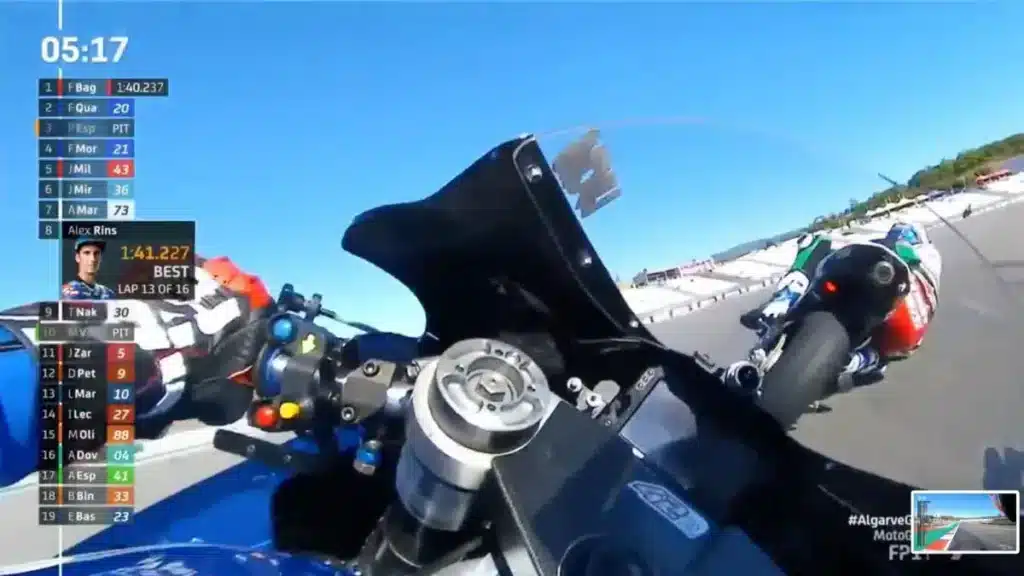
Let’s take the example of the very high level in motorcycling to speak broadly about sports entertainment and fan experience.
The 2023 edition of the MotoGP World Championship kicked off last weekend in Portimao, Portugal. The circuit counts 21 stages this year, and the course of each Grand Prix weekend is very different from the previous year. In summary, the sequence of all the phases (practice, warm-up, race) is denser, each phase is shorter except for the races themselves. In the premier class, a Sprint event is added to Saturday’s program.
Much progress has been made in capturing images, a major issue in today’s sports entertainment.
This is to meet the needs of television channels and social networks with live coverage and a multitude of photo, video, and even sound snippets (interviews and live engine noise). The feeling of immersion is impressive.
The downside of this setup is that the riders are much more exposed. Doubly so. They are asked for more presence, more availability to the public, they are also more in demand on the track, the first criticisms have not been slow in coming, the debate is launched, and the injuries from this first weekend testify to commercial pressure. That’s really what it’s all about.
Motorcycling is just one example among others; sports entertainment is accelerating and seems unconcerned with the issues that shake society (climate, energy, the need to slow down).
Major football tournaments are multiplying and involve more and more teams; new countries are entering this vast market, the “soft power” still has bright days ahead of it. For many players, sport remains a privileged means to gain visibility, notoriety, reach “targets,” shine, and make a place among nations.
Three problems are linked to this model:
The risks of saturation, of weariness that will eventually be generated by the multiplication of events, the gap between the choices of large institutions and the general public, not to mention the multiple reversals of broadcast forcing to multiply subscriptions or make other choices.
If the “fan experience” increases interaction, it is primarily a vector of monetization. With players like online gaming, food, or the automotive industry and its collateral effects (addiction, obesity, pollution), football is not setting an example, but neither are other sectors.
Finally, a frantic search for growth that does not fit well with the major goals in terms of environmental protection. To mention just two examples, Gianni Infantino does not seem to be worried, the lunar interview of the former president of the F.I.S. Gian Franco Kasper testifies to the same desire for economic growth without moral questioning, his successor Johan Eliasch is no more reassuring.
Sport has not yet undergone its philosophical revolution and, in the short term, will only do so marginally. Returning to the starting subject, motor sports are doing quite well. While they may be found exciting, how much longer will they seem acceptable in their current state?








